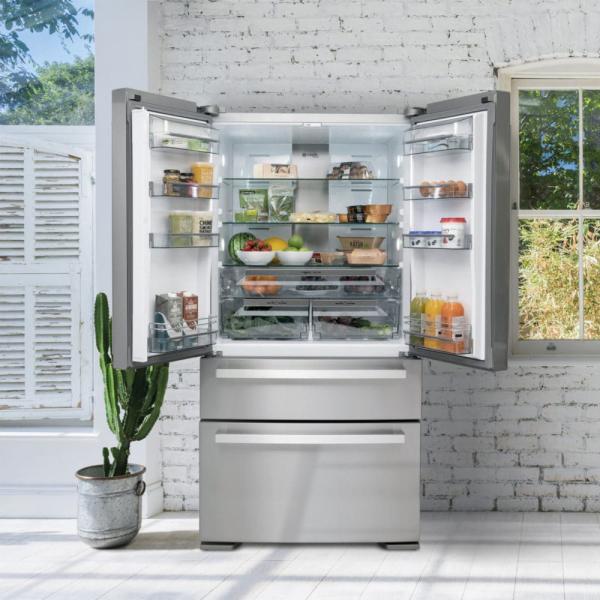Money Saving Guide: How to Run Your Fridge for Less
Fridges account for around 10% of the average UK household's energy consumption. This is because they need to run 24/7 to keep your food fresh. However, there are a number of things you can do to make your fridge more energy-efficient and reduce your running costs.
In this guide, we will look at some of the best tips on how to run your fridge for less in the UK. We will cover everything from choosing the right fridge to maintaining and using it efficiently.

Tips on how to save money on your fridge
1. Choose an energy-efficient fridge
When buying a new fridge, it is important to choose one that is energy-efficient. Look for a fridge with a high energy star rating. This rating indicates how efficiently the fridge uses energy. The higher the rating, the more energy-efficient the fridge is. If you are looking for a new fridge then checkout our ao.com voucher codes as we often have a code that will save you money on your new fridge
2. Place your fridge in a cool spot
The location of your fridge can also affect its energy consumption. Place your fridge in a cool, well-ventilated spot. Avoid placing it near heat sources such as cookers, ovens, and radiators.
3. Clean the condenser coils
The condenser coils are located at the back of your fridge. They help to dissipate heat from the fridge. Over time, the condenser coils can become dusty and dirty. This can make the fridge less efficient and use more energy. Clean the condenser coils at least once a year to keep your fridge running efficiently.
4. Keep the door closed
Every time you open the fridge door, cold air escapes and warm air enters. This makes the fridge work harder to keep the temperature down. To reduce energy consumption, try to keep the fridge door closed as much as possible.
5. Defrost your fridge regularly
If your fridge has a frost-free compartment, you will not need to defrost it manually. However, if you have a traditional fridge, you will need to defrost it regularly. A build-up of ice and frost in the fridge can make it less efficient and use more energy.
6. Avoid overfilling your fridge
An overfilled fridge can be less efficient than a fridge that is not as full. This is because the cold air has more difficulty circulating around the food and keeping it cool. Try to leave some space in your fridge so that the air can circulate freely.
7. Don't put hot food in the fridge
When you put hot food in the fridge, it raises the temperature of the fridge and makes it work harder to keep the temperature down. Instead, let the food cool down completely before putting it in the fridge.
8. Use the correct temperature setting
The ideal temperature for your fridge is between 3°C and 5°C. If your fridge is set too cold, it will use more energy. If your fridge is set too warm, your food may not stay fresh as long.
Conclusion
By following these tips, you can reduce the energy consumption of your fridge and save money on your energy bills.
Additional tips
- Keep your fridge well-organised. This will make it easier to find what you need and avoid opening the door unnecessarily.
- Use storage containers to keep your food fresh and organised.
- Freeze leftovers that you won't eat right away. This will help to reduce food waste and save you money on groceries.
- Regularly check the expiration dates on your food and throw away anything that is expired.
By following these tips, you can make your fridge more energy-efficient and save money on your energy bills.
Authored by Julian House on 31st October 2023





